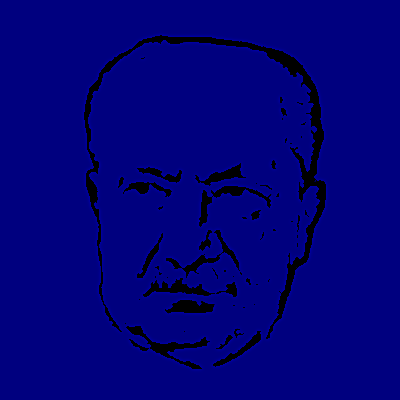What does it mean to read? Interpretations of légein, legen and lesen on the way to the question of the saying of Speech in Martin Heidegger's work.
Main Article Content
Abstract
In this brief study, we try to question about what is called reading?, issue oriented towards the question what is called thinking?. This is in the context of hermeneutical inquiry into the way of Reading implicated in the complex relationship between reading, interpreting and understanding in Martin Heidegger’s work. To do this, first of all, we are going to listen to the archaic senses of the Greek légein; then we will study the place of that which exhorts thinking itself to think (like noeîn), that is, a silence that concerns the mortal insofar as what is said in saying is not available to any representative thought, as a maximum indication of the openness to otherness that languages say. Finally, we would like to present some conclusions by way of closure.
Downloads
Article Details

This work is licensed under a Creative Commons Attribution-NonCommercial-NoDerivatives 4.0 International License.
Authors retain ownership of copyright and reproduction rights.
Authors may make other independent and additional contractual arrangements for non-exclusive distribution of the version of the article published in this journal (e.g., inclusion in an institutional repository or publication in a book) as long as they clearly indicate that the work was first published in this journal.
Authors are allowed and encouraged to publish their work on the Internet (e.g. on institutional or personal websites) after the review and publication process, as it may lead to productive exchanges and to a wider and faster dissemination of the published work.
References
Celan, P. Obras completas. Tr. J. L. Reina Palazón. Trotta, Madrid, 2009.
Córdoba Ospina, G. "Meditación, Imagen (pensar y poetizar)" en Confrontación en la imagen: Un tránsito hacia el pensar del otro inicio de Martin Heidegger. Cuadernos de Studia Heideggeriana: Studia Heideggeriana. Madrid, 2021, pp. 115- 205.
Díaz Arroyo, J. L. "Anotaciones a la cuestión de la verdad en el poema de Parménides a propósito de la diosa-alétheia", en Grecia y nosotros. Hermenéutica y lenguajes poéticos. Dykinson, Madrid, 2021.
Díaz Arroyo, J. L. "Del Sí mismo a lo mismo: comentarios a los lugares de la mismidad del Poema de Parménides de Elea en el camino de Martin Heidegger hacia los 'pensadores del inicio'". Human review. International humanities review (Aprobado para su publicación, estimada 2021).
Duque, F. "El Dios del otro inicio". Endoxa: Series filosóficas 20, 2005, pp. 719-732.
Gadamer, H.-G. Arte y verdad de la palabra. Tr. J. F. Zúñiga García. Paidós, Barcelona, 2016.
Gadamer, H.-G. Mito y Razón, Tr. J. F. Zuñiga García. Paidos, Barcelona, Paidos, 2010.
Heidegger, M. Aus der Erfahrung des Denkens (1910-1976). GA 13. Hg. H. Heidegger. Klostermann, Frankfurt am Main, 1983
(Experiencias del pensar (1910-1976). Tr. F. de Lara. Madrid, Abada, 2014).
Heidegger, M. "Logos (Heraklit, Fragment 50)". Vorträge und Aufsätze (1936-1952). GA 7. Hg. F.-W- von Hermann, Klostermann, Frankfurt am Main, 1989 ("Lógos (Heráclito, Fragmento 50)". Conferencias y artículos. Tr. E. Barjau. Serbal, Barcelona, 2001).
Heidegger, M. "La esencia del habla". En De camino al habla. Tr. I. Zimmermann. Serbal, Barcelona, 2002.
Heidegger, M. “El origen de la obra de arte”. en Caminos del Bosque. Tr. H. Cortés y A. Leyte. Alianza, Madrid, 2003.
Heidegger, M. Aportes a la filosofía: Acerca del evento. Tr. D. V. Picotti. Biblos, Buenos Aires, 2006.
Heidegger, M. ¿Qué significa pensar?. Tr. R. Gabas. Trotta, Madrid, 2008.
Heidegger, M. Desde la experiencia del pensar. Ed. bilingüe a cargo de F. Duque. Abada, Madrid, 2013.
Heidegger, M. El Evento. Tr. D. V. Piccoti. El hilo de Ariadna, Buenos Aires, 2016,
Martínez Marzoa, F. De Grecia y la Filosofía. Universidad de Murcia, Murcia, 1990
Martinez Marzoa, F. Historia de la filosofía. Istmo, Madrid, 1994
Navarro Cordón, J. M. "Leer e interpretar: algunas cuestiones relativas a la comprensión de textos" en Francois Jaran (eds.) Studia Heidegeriana IX (Ed. F. Jaran). 2020.
Oñate, T. Para leer la metafisica de Aristoteles en el siglo XXI: Análisis Críticohermenéutico de los catorce lógoi de Filosofía
primera. Dykinson, Madrid, 2001.
Oñate, T. "Heidegger hó skoteinós (el obscuro): la ontología estética del espacio tiempo tras la Kehre del Segundo Heidegger", en Estética Ecología y Filosofía de la Historia (Hermenéuticas contra la violencia III). Madrid, Dykinson, 2019.
Roberts, E. & Pastor, B. Diccionario etimológico indoeuropeo de la lengua española. Alianza, Madrid, 2019.

